|
In the July 2023 update, Oracle Analytics Cloud has introduced a new feature called AutoML. Oracle AutoML, or Oracle Automated Machine Learning, is a feature within the Oracle Cloud Infrastructure (OCI) platform that has been accessible within OCI in the Autonomous Database. Its main objective is to automate the process of developing and deploying machine learning models. AutoML is designed to simplify and accelerate the model building process, particularly for users who may not have extensive expertise in data science or machine learning. What exactly is AutoML? Oracle AutoML provides a user-friendly interface that allows users to upload their data, specify the target variable they want to predict or classify, and set various model configuration options. The platform then automatically explores different algorithms, feature transformations, and hyperparameter settings to find the best-performing model for the given task. The AutoML process involves several steps, such as data preparation, feature engineering, model selection, hyperparameter tuning, and model evaluation. Oracle AutoML takes care of these steps behind the scenes, leveraging advanced techniques and computational resources to optimise the model building process. Once the best model is identified, Oracle AutoML enables users to deploy the model for real-world use cases. The deployed model can be integrated into applications or used for making predictions and decisions based on new data. Overall, Oracle AutoML aims to democratize the use of machine learning by automating complex tasks and reducing the need for specialized knowledge. It enables users to leverage the power of machine learning without the extensive time and effort typically required for model development, allowing them to focus more on deriving insights and value from their data. AutoML in Oracle Analytics CloudAutoML has now been embedded in Oracle Analytics in the July 2023 update enabling users with no prior Machine Learning experience to use the right models with the correct hyperparameter settings. 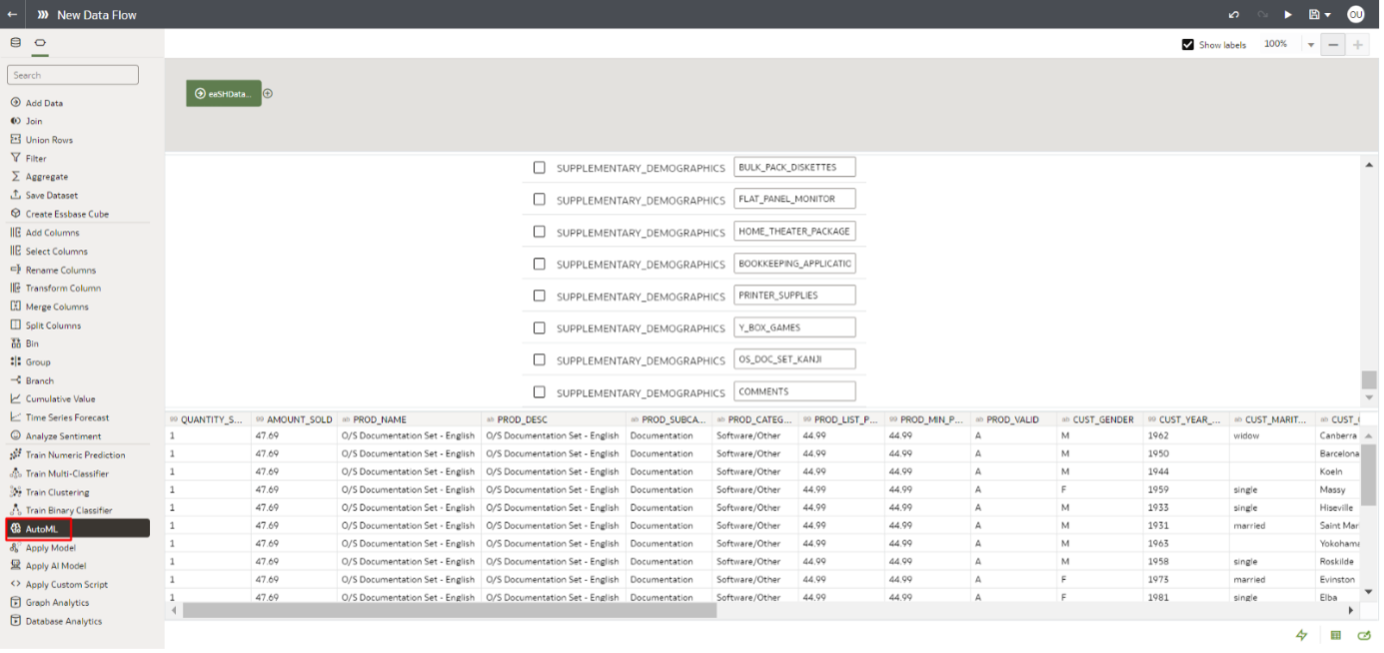 You add a dataset to a data flow which has the data with the field to be predicted. The next step is to add the new AutoML step. 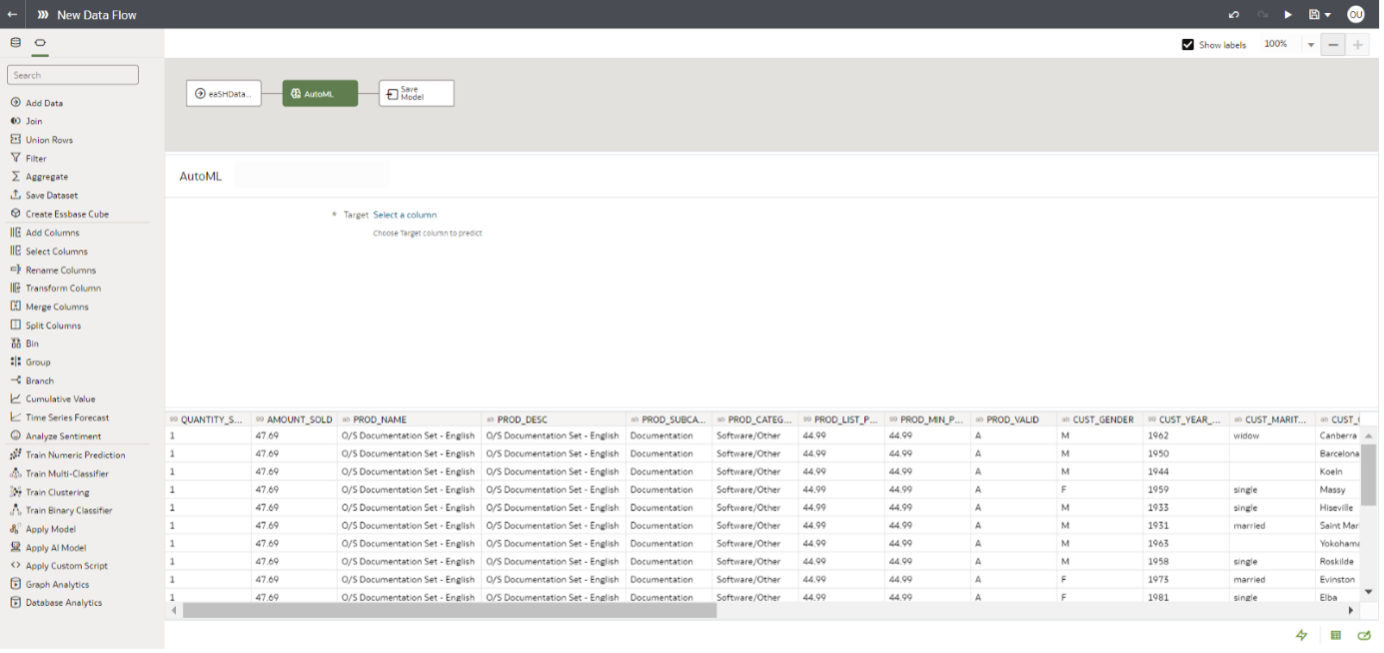 All you must do in this step is to specify the column that needs to be predicted and Oracle Analytics will automatically determine which type of model is best suited for the selected column. 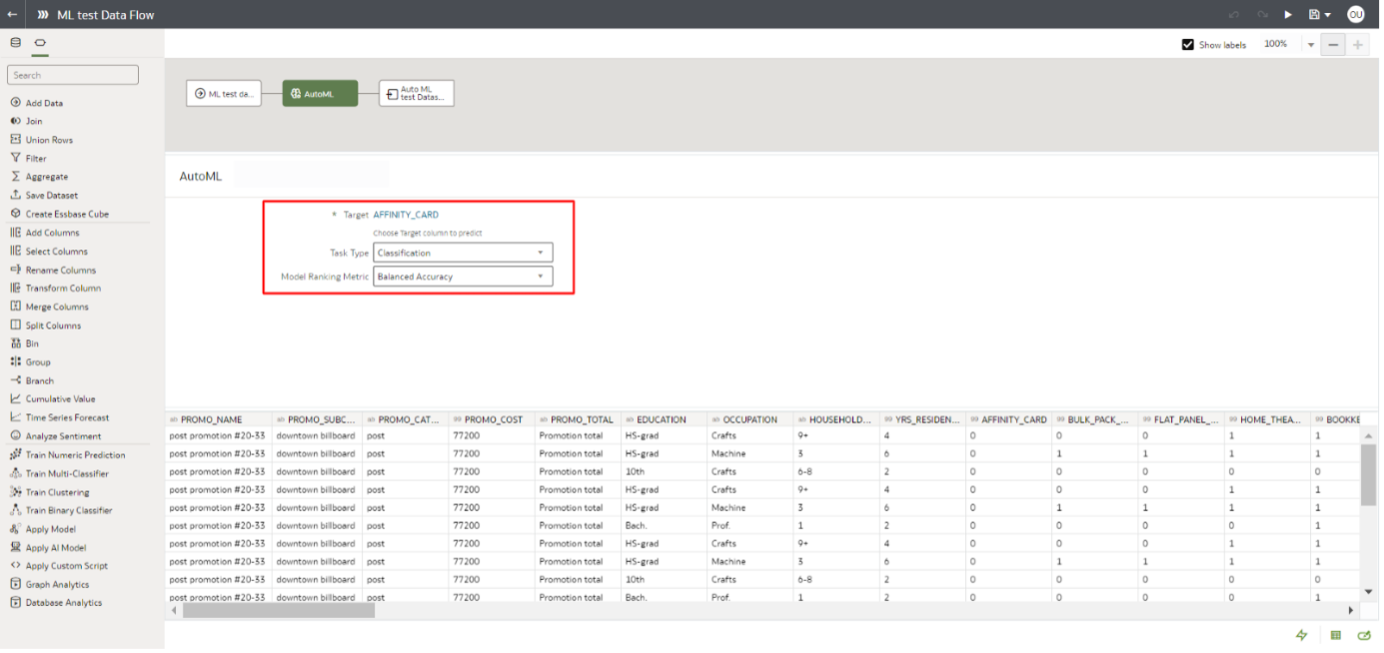 The final step in all data flows as usual is to “save model”. The data is saved into a dataset, in this case, it is saved to a machine learning model called AutoML test Dataset as below: 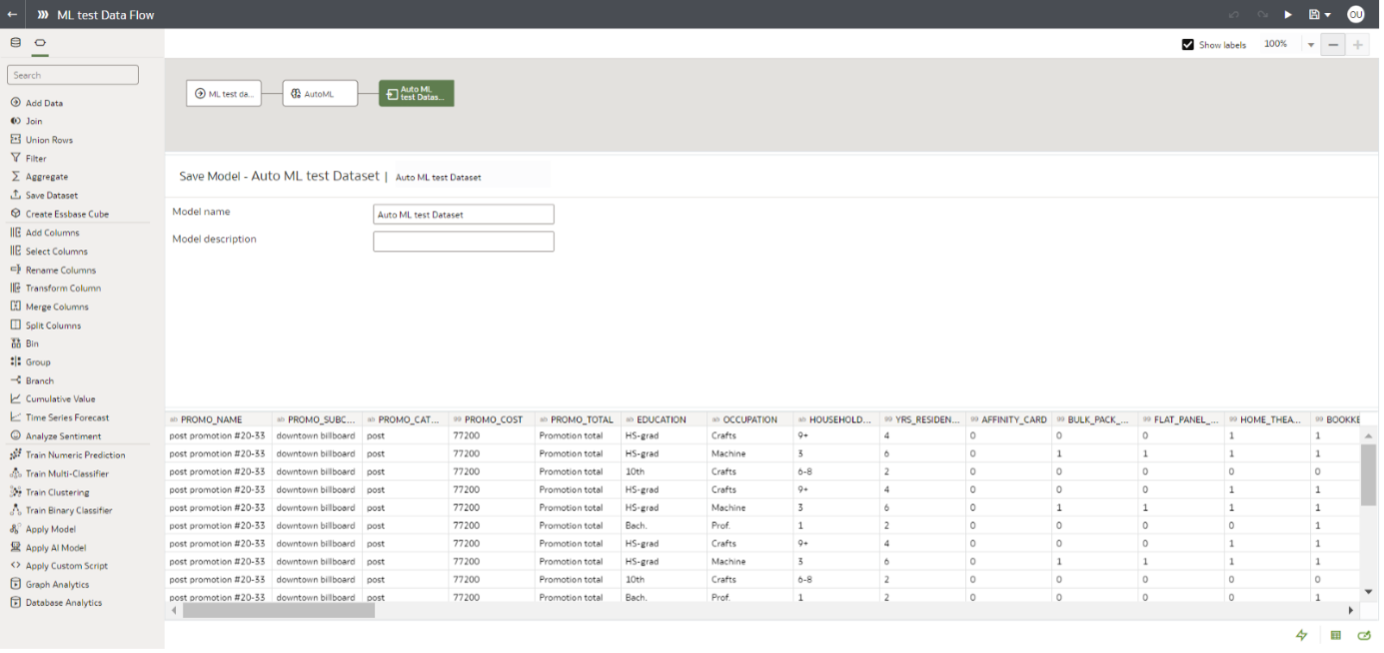 Once this is completed, the machine learning model is available to be run on a data set. You can find the new model in the Machine Learning section of the main menu: Right clicking on the model and selecting the Inspect menu option gives you more information about the ML model. 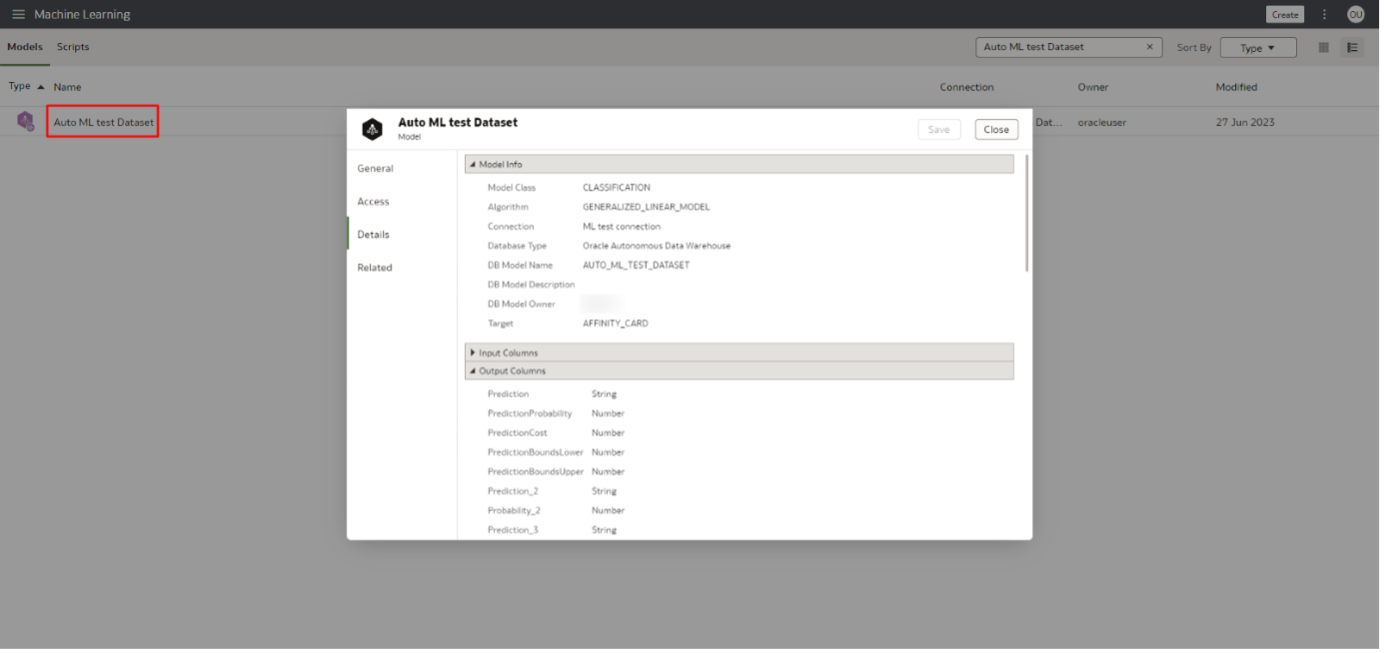 The final stage of the process is to now use the ML model created in the data flow and apply it to an actual data set.
Pre-requisites Whilst I was looking at the AutoML feature, there were a number of issues that I came across that I have noted below. The database user of the connection in Oracle Analytics should have limited privileges. These privileges should include:
The AutoML process will fail if the database user of the connection has DBA administrator privileges. You will see an error message similar to this excerpt: Step |j| Execution failed. Status: FAILED. Message: Error Message: Failed to create remote AutoML JOB Error: {'errorMessage': user not allowed to run scripts', 'errorCode': 1026} You should allocate enough OCPUs to your database for AutoML jobs to complete successfully. In my experience, AutoML jobs have failed to complete with 1 OCPU. The database should also have sufficient tablespace storage. If the storage space is insufficient, you will see an error message like this excerpt below: Step |j| Execution failed. Status: FAILED. Message: Error Message: The remote AutoML job failed due to a bad request. Message: {"Unexpected Script Execution Error":"ORA-65114: space usage in container is too high: Conclusion The latest AutoML updates make cutting-edge ML more accessible than ever before in Oracle Analytics Cloud. Organisations can now rapidly build and deploy accurate models to turn data into actionable insights with ease. By putting Machine Learning in the hands of more users, the new AutoML feature helps to promote a culture of collaboration and innovation with data across the enterprise unlocking transformative ways in which organisations can leverage AI to create value and drive growth.
0 Comments
|
AuthorA bit about me. I am an Oracle ACE Pro, Oracle Cloud Infrastructure 2023 Enterprise Analytics Professional, Oracle Cloud Fusion Analytics Warehouse 2023 Certified Implementation Professional, Oracle Cloud Platform Enterprise Analytics 2022 Certified Professional, Oracle Cloud Platform Enterprise Analytics 2019 Certified Associate and a certified OBIEE 11g implementation specialist. Archives
May 2024
Categories |



 RSS Feed
RSS Feed

